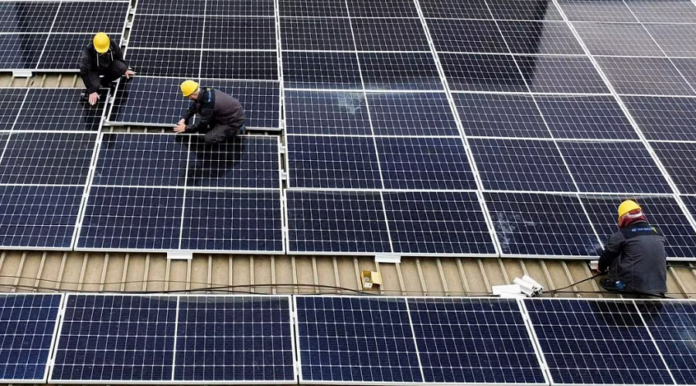Western Balkan nations are seeing a boom in solar energy investment, which could help ease a power crisis that had threatened a shift away from coal, but industry officials say transmission systems are not prepared for new energy feeds, according to Reuters.
North Macedonia’s Economy Minister Kreshnik Bekteshi said investors have started to invest „quite furiously” in solar plants and that his country, which is a power importer, has become a regional hub for renewable energy sources.
Since 2021, solar parks with 139 Megawatt (MW) capacity have been built while up to 300 MW of new solar energy is planned to be produced by end-2023, which is enough to supply eight towns with electricity, said Marko Bislimovski, the president of North Macedonia’s Energy Regulatory Commission.
However, transmission and distribution grids are not prepared to absorb such sudden feeds of solar energy and need to expand in order to accept and balance the energy which is generated during daylight only, he said.
“Our grid can afford the transmission of about 1,300 MW of photovoltaic energy and distributive network has capacity for 700-800 MW while there is a plan for transmission of 5,000 MW,” Bislimovski said. „So we have problems.”
The other solution, though costly, is to store the electricity. Legislation was therefore amended to require investors to secure battery storage of electricity in areas where the grid is already booked.
Certified producers of solar panels in addition warn that poor control of companies that install solar panels without licence amidst rising demand causes technical glitches and may inflict a huge damage to energy system.
Solar plants have mushroomed also across Bosnia, the only Balkan country that exports electricity, especially in the southern Herzegovina region. Stolac, the town that pioneered the use of solar energy 12 years ago, has now become a big construction site.
“We plan production capacity from solar energy of up to 600 MW,” Stolac Mayor Stjepan Boskovic said, cautioning however that the plan depends on transmission lines’ capacity and the readiness of state agencies to expand it accordingly.
Boskovic said that private and public companies have bid for projects worth about 1 billion Bosnian marka ($559 million) in the area.


